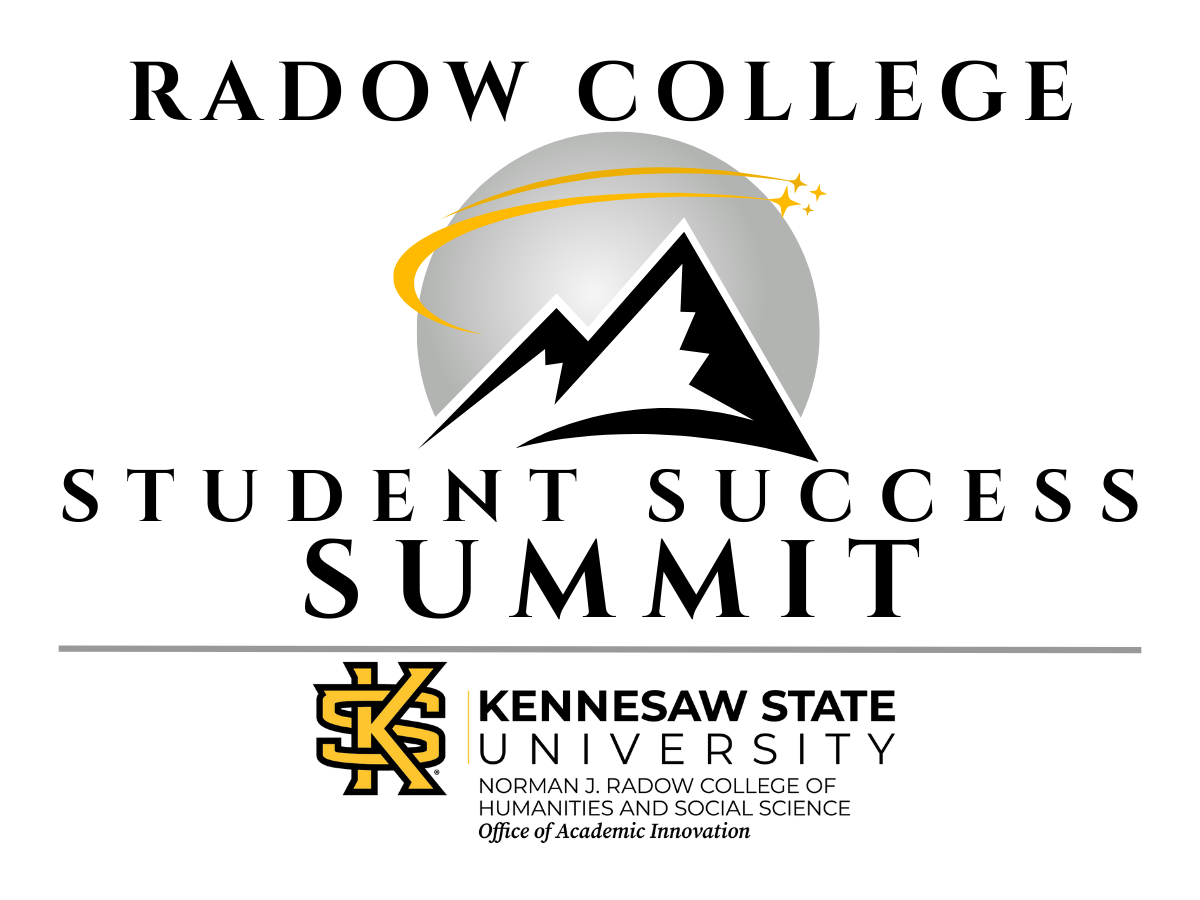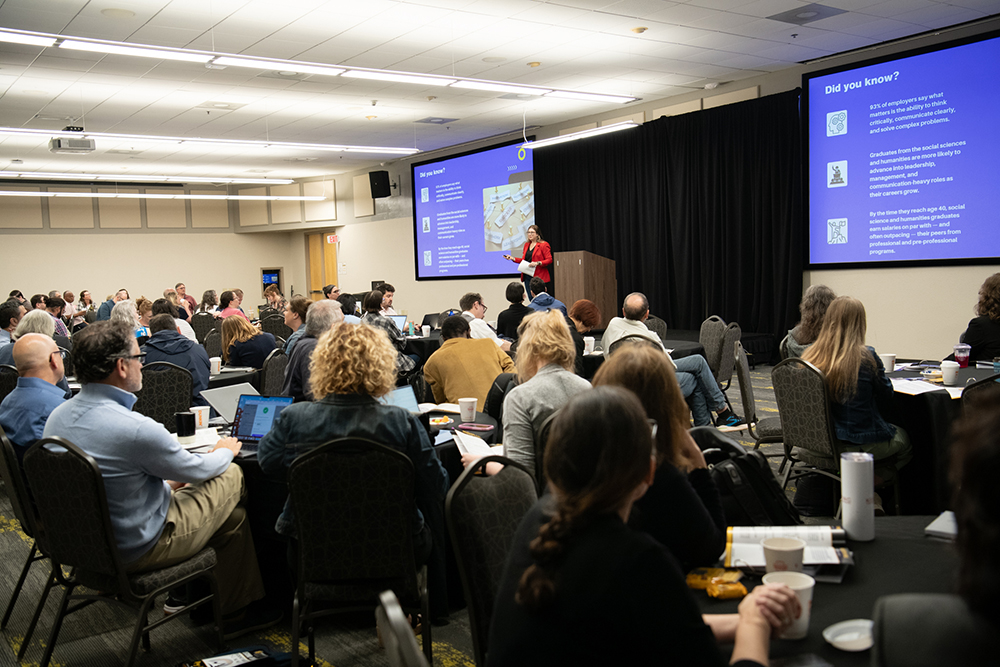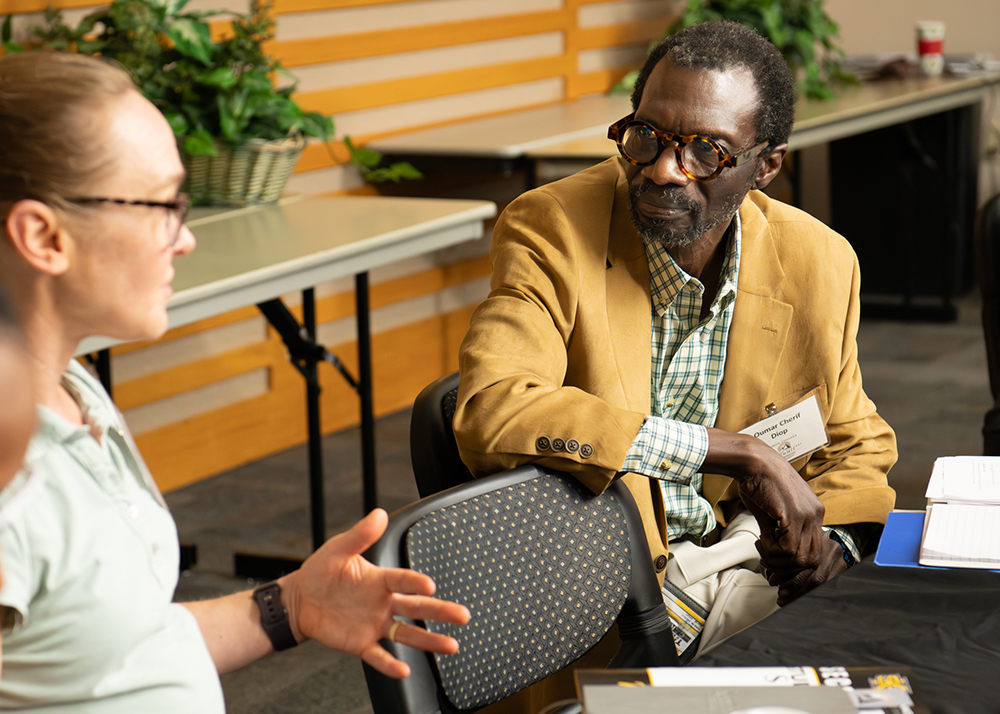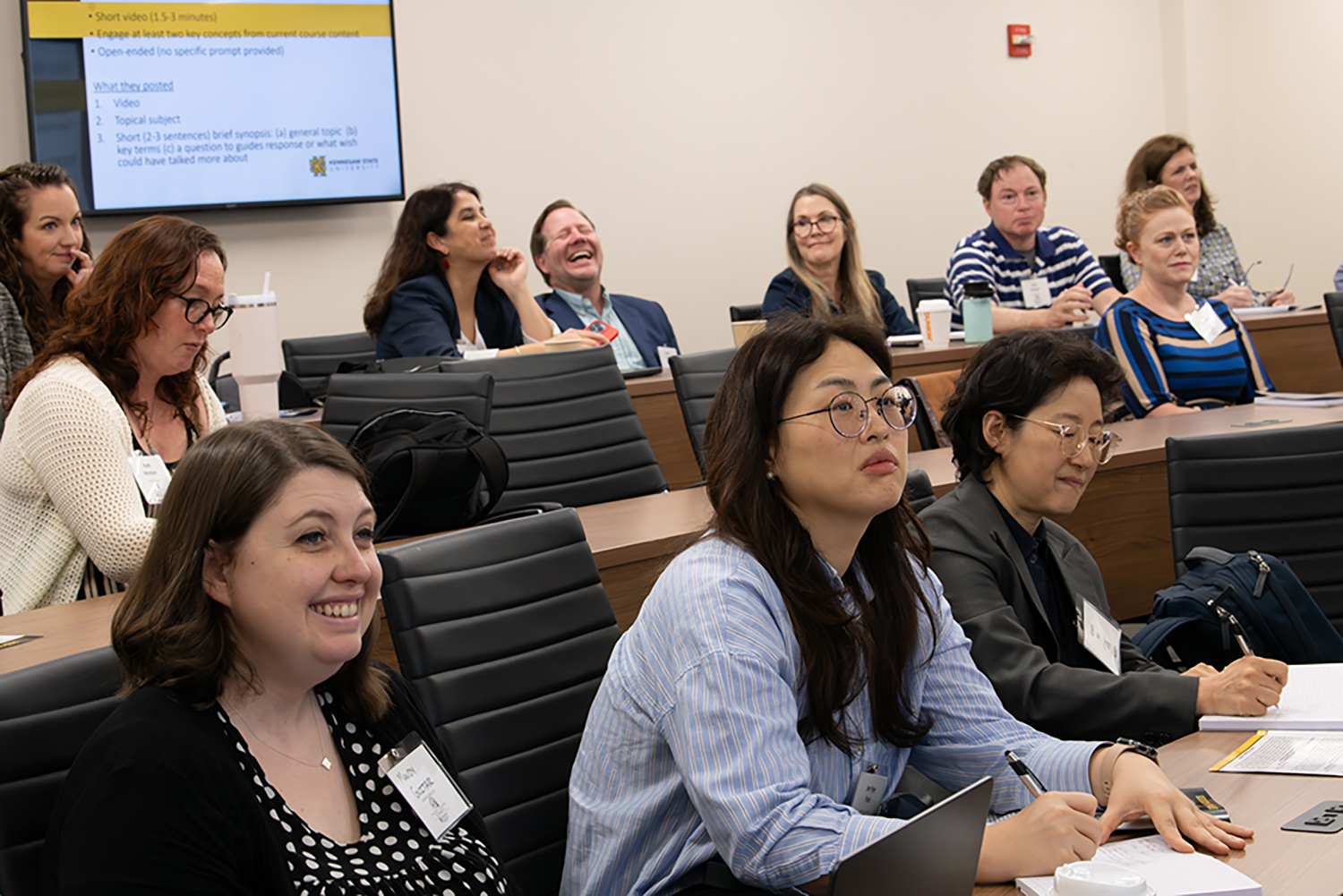

KENNESAW, Ga. | May 15, 2025

“I am so excited to have worked with the Office of Academic Innovation to present this Student Success Summit again this year,” said Dean Katie Kaukinen. “This is an important initiative that supports both our full-time and part-time faculty. The energy that we have seen during the Summit is a testament to the dedication our faculty have in advancing our students’ educational journey and learning from one another’s professional expertise.”
Faculty were able to join sessions on topics such as the integration of AI in teaching strategies, which teaches students the ethics of AI, and prepares faculty with the tools to take a student-focused approach to introducing them to both the pitfalls and benefits of ChatGPT and generative AI.

Steve Miller, Ph.D., part-time faculty member for Interdisciplinary Studies, attended a session titled, “Promoting Self-Directed Learning in AI-Assisted Writing,” and had some important take-aways. Initially, he felt he had to “police” the use of AI in his classroom, but after the session he now sees it as a tool he can use to enhance his teaching strategies and feels prepared to help his students effectively and thoughtfully apply the use of AI at a level they are comfortable with. Miller said, “It doesn’t help to be student focused if you don’t know how your students think. I thought all students were using AI, but when I heard that in one professor's class, under half of the students had been using AI, I was surprised. I am more focused now on understanding how students engage in using AI and how I can use it as an effective teaching tool and help students use it effectively as a learning tool.”
The Student Success Summit was about much more than the application of technology. Participants networked with one another and established relationships both inside and outside of their respective departments. “The summit is a clear demonstration of Radow faculty's passion for teaching excellence and centering student success,” said Associate Dean of Faculty Excellence, Gregory Paul, Ph.D. “The sessions were high-energy and their dedication to honing their craft was evident.”
This being his first-year teaching at KSU, Carlos Kelly, Ph.D., assistant professor of English appreciated the camaraderie. “It’s nice to see others concerned with students. Student success is abstract, but here I get a window into seeing how colleagues do things differently. I see I’m not the only one who cares to be around that kind of energy, and as new faculty, I see what works for students and I get new ideas. This is a window into what others are doing and informing me, validating my expertise, as well as seeing different approaches.”

Presentations also focused on service learning and hands-on, tactile approaches, including aligning with college-wide initiatives such as 365 Days of Learning & Service. Some faculty have embraced the initiative and built into their curriculum assignments such as a video production project that focuses thematically on the service initiative, while providing students with the opportunity to develop career-ready communications skills such as message development and learning video shooting, editing, and presentation skills.
“We continually work to develop pedagogical strategies that enable us to keep pace with rapid changes in the educational landscape and then balance that with helping students build the skill sets that we know employers require. Consequently, we must be nimble and innovative to prepare our graduates to meet the demands of their chosen fields and create a forum for our faculty where they can share their pedagogical best practices that benefit the student,” said Kris DuRocher, Ph.D. Associate Dean of Academic Affairs – Curricular Innovation and Enrollment Management. “The Student Success Summit is purposefully designed to give our faculty an opportunity to interact with one another outside of the demands of the classroom, to share their innovations and High Impact Practices, and to inspire one another.”

The Student Success Summit is developed and hosted by the Office of Academic Innovation (OAI). Now in its second year, it has quickly become an anticipated event to cap the end of the semester. Planning has already begun for next year’s Summit and the expectation is that it will continue to offer faculty valuable tools and strategies that center Radow College students and elevate the educational experience delivered by Radow College faculty.